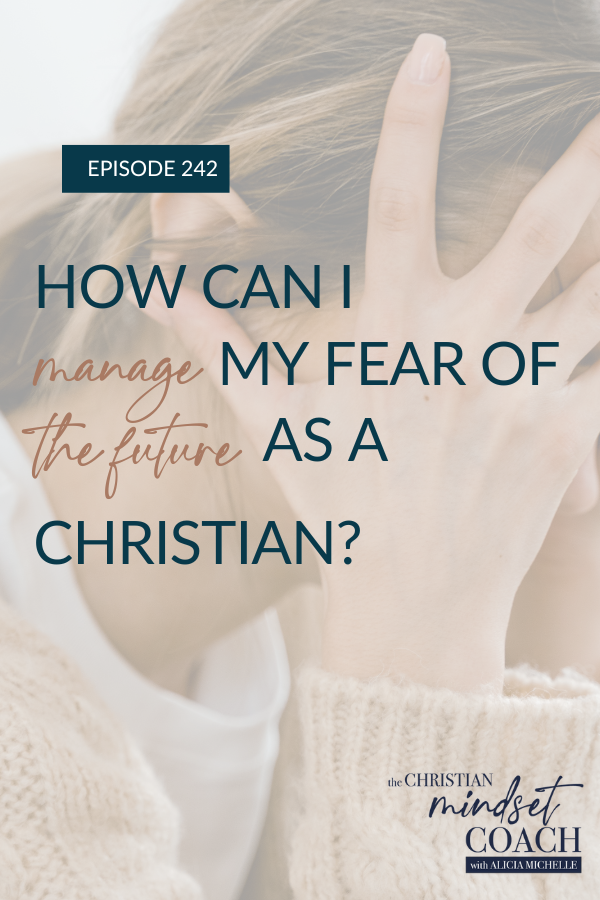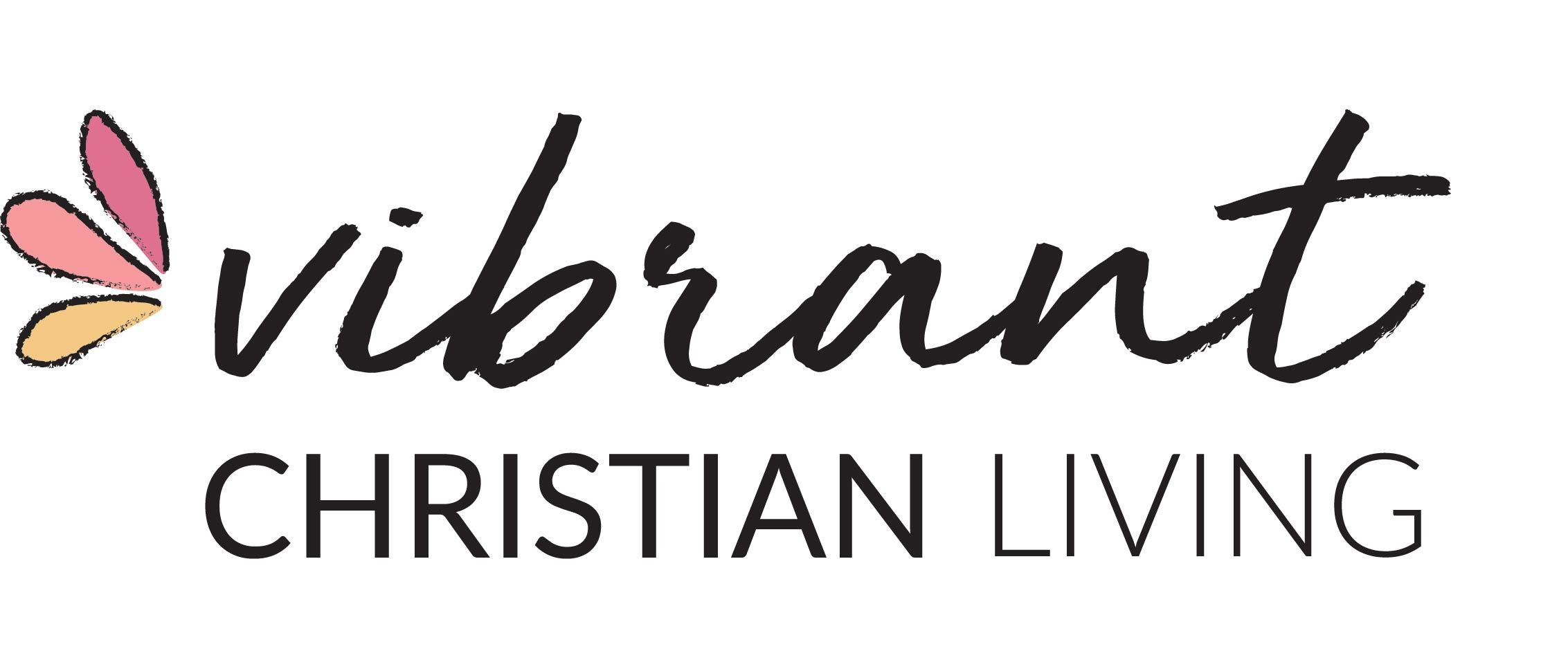Do you struggle with anxiety around managing fear of the future? You are not alone. In this episode, you will learn how to combat these anxious thoughts and break free from the cycle of fear so that you can surrender to God.

WHAT YOU’LL LEARN:
- [01:43] Is fear bad?
- [04:36] What is the difference between worldly fear and godly fear?
- [08:00] The concept of pachad and yirah
- [12:14] Are you stuck in the fear coping mechanism cycle?
- [14:05] What is a healthy coping mechanism to deal with fear?
- [15:06] Are there “cracks in your foundation” when it comes to trusting God?
[01:43] Is Fear Bad?
Fear doesn’t mean that we are broken or doing something wrong. Fear is simply a biological response to an unknown situation. Fear is not inherently a bad thing, however, we live in a world where we are constantly inundated with new information and our bodies are not designed to handle this.
Because we constantly have so much going on, we often retreat into fear to protect ourselves. In this moment, we have the choice to either retreat and give into fear or invite God in to help us navigate our fearful thoughts.
[04:36] What is the difference between worldly fear and godly fear?
Worldly fear is focused on us and our limited absolutes. It's focused on what we can do and our efforts.
Godly fear, on the other hand, focuses on who God is and what He is capable of. When we can transition from worldly fear to godly fear, we're saying that He is capable of things that we can't even see, in order to release the fear because it is bigger than who we are or what we can see in this moment.
Worldly fear also relies only on our current knowledge while Godly fear rests in knowing that God has a grand view of the entire scene.
[08:00] The concept of pachad and yirah
Both pachad and yirah are Hebrew words used to describe fear. Pachad fear is that worldly fear where yirah is like godly fear.
Another way that we can see the difference between worldly fear and Godly fear is that worldly fear stays paralyzed without all the information, because information is the source of comfort. Information is what makes us feel safe to be able to to move forward or to feel better. Our godly fear allows us to confidently move forward with direction, even if not all of the information is present.
[12:14] Are you stuck in the fear coping mechanism cycle?
The final difference between worldly fear and godly fear is that worldly fear is locked in a fear coping mechanism cycle. We are forced to create a coping mechanism in order to deal with the fear and make us feel more at ease. This doesn’t make the fear disappear, it only temporarily masks the fear.
That means we are only perpetuating the cycle, so we continue to stay stuck in that worldly fear instead of letting go and surrendering to the godly fear and resting in expectant hope.
[14:05] What is a healthy coping mechanism to deal with fear?
Resting in expectant hope is a healthy coping mechanism to deal with fear. This is what God tells us to do. He shows us how to release and give those burdens to Him.
Matthew 11:28 says “Come to me all who are weary and laden with problems and I'll give you rest” but often times we don't do that next step of fixing our thoughts (Philippians 4) so the cycle continues.
[15:06] Are there “cracks in your foundation” when it comes to trusting God?
People often want to fully surrender their issues to God but struggle to do so. It is important to look within and see what is keeping us from trusting God in this area. One of the very first things we talk about in the Christian Mindset Makeover is this idea of what lies have we allowed ourselves to believe about God.
A lot of times, these lies have appeared after we have walked through some really challenging times and were left wondering “Where was God?” Without knowing it, we've allowed cracks in our foundation of trust in the Lord to exist. When this happens, it's really hard to move forward in expectant hope.
Isaiah 26:7-8 says “You are a God, who does what is right, and you smooth out the path ahead of them. Lord, we show our trust in you by obeying your laws. Our heart's desire is to glorify Your name.”
Trust is at the crux between obedience and surrender. If we have had that trust shaken, it's going to be really hard to obey the Lord and follow through with what He says, but also to be able to rest in hope.
Because our brain is always trying to keep us safe, if we haven't removed all of the obstacles, some resistance is going to occur. Surrendering is an act of trust and obedience is often a precursor to surrender.
Like it says in Isaiah 26:8, “Lord, we show our trust in you by obeying your laws.” We are able to take that step of obedience because we give in to trust and ultimately, the bridge between obedience and surrender is trust. If there is a rickety bridge between those two things, or no bridge at all, it's really hard to surrender.
If this is something that you are struggling with, it is time to face this head on and ask the Lord Lord to show you why you are struggling to trust in Him and break this fear cycle. If you are unsure of how to make that happen, the Calm Your Anxiety Tool Kit helps you create a custom plan to identify what is triggering your anxious thoughts and get you unstuck from the fear cycle.
Check out Alicia’s Calm Your Anxiety Tool Kit to create your custom plan to manage your anxious thoughts.
163: How I Take Courage, Manage Anxiety, and Release Fear with Amy Debrucque
201: It's Time to Make a Plan to Manage Anxiety, Release Fear and Stop Worry

